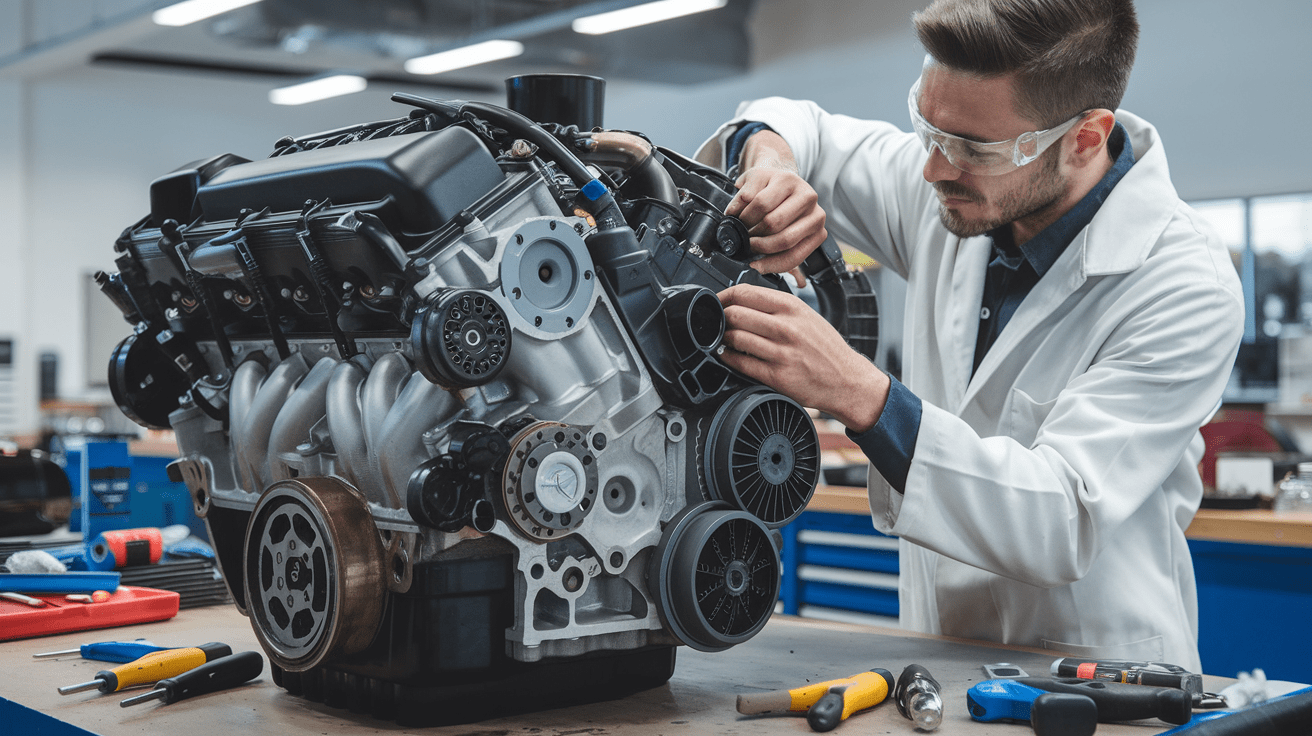The world of automobiles is constantly evolving and driven by advancements in mechanical engineering solutions. From improving engine efficiency to enhancing vehicle safety features, mechanical engineering plays a crucial role in pushing the limits of what cars and other vehicles can achieve. By blending innovation with practical engineering skills, mechanical engineers contribute to better performance, reduced emissions, and a more enjoyable driving experience.
Mechanical Engineering’s Role in Automobiles
Mechanical engineering has always been at the heart of the automotive industry. It involves applying physics, material science, and engineering principles to create and optimize cars and vehicles for better functionality and performance. Mechanical engineers are tasked with designing, testing, and refining everything from engines and transmissions to the suspension and braking systems.
One of the primary focuses of Mechanical Engineering Solutions in the automobile sector is improving fuel efficiency while maintaining or increasing vehicle power. This is critical today, with a strong demand for more eco-friendly, high-performance cars that don’t compromise speed or power. Mechanical engineers also work on innovations such as hybrid and electric vehicles, which require new propulsion and energy management systems approaches.
Innovations Shaping Automobile Performance
The ongoing innovations in mechanical engineering have revolutionized how vehicles are designed and performed. Some key areas where these innovations are taking shape include:
- Engine Efficiency and Power: Mechanical engineers are constantly finding ways to make engines more efficient while increasing their power output. Through advanced technologies like turbocharging, direct fuel injection, and variable valve timing, engineers can significantly enhance the performance of cars without increasing fuel consumption.
- Lightweight Materials: Mechanical engineers are also making significant strides in reducing vehicle weight. By using advanced materials like carbon fiber composites and aluminum alloys, engineers can lower vehicle weight, improving fuel efficiency and handling. These materials are strong, lightweight, and highly durable, making them ideal for modern automobiles.
- Vehicle Aerodynamics: Optimizing a vehicle’s aerodynamics is key to enhancing performance and fuel economy. Mechanical engineers work to reduce air resistance by designing more streamlined vehicle bodies. This not only improves speed and fuel efficiency but also contributes to the vehicle’s overall stability at high speeds.
- Safety Innovations: Mechanical engineering has also contributed significantly to developing safety systems in cars and vehicles. From anti-lock braking systems (ABS) to advanced airbags and crumple zones, mechanical engineers design these systems to minimize the impact of accidents and protect passengers. Mechanical engineers are also developing innovations such as autonomous driving technologies to make vehicles safer for everyone on the road.
Mechanical Engineering Solutions for Hybrid and Electric Vehicles
Mechanical Engineering Solutions have become even more vital with the automotive industry shifting towards eco-friendly vehicles. Mechanical engineers are key to developing hybrid and electric vehicles, where they work on integrating electric motors with traditional combustion engines or designing fully electric drivetrains.
Mechanical engineers focus on battery efficiency, cooling systems, and motor design in electric vehicles (EVs) to ensure that these vehicles offer sufficient power while maintaining range and reducing charging times. As EVs grow in popularity, engineers are constantly innovating to make them more affordable, efficient, and practical for everyday use.
Innovations are shaping in mechanical engineering, particularly with integrating renewable energy sources in automobile design. This involves designing systems that can harvest energy, such as regenerative braking, which converts kinetic energy back into electrical energy to charge the battery.
Enhancing Vehicle Comfort and Experience
Mechanical engineers don’t just focus on power and efficiency; they also work on enhancing the overall driving experience. This includes improving suspension systems for a smoother ride, refining the ergonomics of vehicle interiors, and developing noise-reduction technologies to make cars quieter and more comfortable.
A vehicle’s suspension and steering systems are key areas of focus, as they directly affect how a car feels to the driver and passengers. Engineers continuously improve these systems to balance comfort and performance, ensuring that vehicles handle well while offering a smooth ride even on rough roads.
Mechanical engineers also focus on integrating cutting-edge technology into vehicles, such as adaptive cruise control, automated parking, and advanced infotainment systems. These features make driving more enjoyable and enhance safety and convenience.
The Future of Automobile Performance
As technology advances, mechanical engineers are expected to play an even more pivotal role in the future of automobiles. The next wave of innovation will likely focus on:
- Autonomous Vehicles: Self-driving cars are becoming a reality, and mechanical engineers are at the forefront of designing systems that allow vehicles to navigate roads without human intervention. This involves developing complex sensor systems, advanced algorithms, and safety mechanisms to ensure these vehicles operate smoothly and safely.
- Connected Vehicles: Mechanical engineers are also working on “smart” vehicles connected to the Internet and communicating with other vehicles and infrastructure. These connected systems can improve traffic flow, reduce accidents, and provide real-time data to enhance vehicle performance and maintenance.
- Sustainability: As the world moves towards sustainable transportation, mechanical engineers are working on developing vehicles that produce zero emissions. Hydrogen-powered cars and solar-powered vehicles are just a few examples of future innovations that engineers are working on to reduce the environmental impact of transportation.
Role of Engineering Companies in Shaping the Future
Mechanical engineering is integral to the continuous enhancement of automobile performance. By working on every aspect of vehicle design, from engines to safety systems, mechanical engineers ensure that vehicles meet the demands of today’s drivers while also preparing for the future. Their work on hybrid and electric vehicles and innovations in materials and aerodynamics ensures that cars are becoming more efficient, powerful, and environmentally friendly.
As the demand for more advanced and sustainable vehicles grows, engineering companies will play a crucial role in shaping the future of the automotive industry. These companies are at the forefront of developing cutting-edge technologies that will improve vehicle performance and contribute to a cleaner, safer, and more connected world of transportation. Through their expertise and innovation, mechanical engineers are driving the future of automobile performance forward, making it an exciting time for the industry and consumers.

